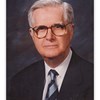Dr. Peterson holds the John David Campbell Chair in American Business at the American Graduate School of International Management in Glendale, Arizona. He is a member of the board of governors of Invest-in-America National Council, Inc.
Los Angeleans Jim and Bob run an advertising agency. Lisa and Yolanda make jewelry. Ivan builds ships. Edna publishes a newspaper. John operates a savings and loan company.
No big deal.
But these and other business people operate in districts that don’t usually appear on maps of Los Angeles. Districts like Poohville, Economyville, Kookie Kounty and Land of Knowledge — districts or lands or miniature societies that fly their own flags, issue their own passports and create their own money.
Jim and Bob and the other business people, you see, are from 8 to 12 years of age. They are part of an experimental program by the Los Angeles public schools in teaching economics. The program has been dubbed "The Mini Society" by two of its creators, Drs. Marilyn Kourilsky of UCLA’s education department and James Claybourn LaForce, chairman of UCLA’s economics department.
Professors Kourilsky and La-Force, with the help of the Foundation for Research in Economics and Education (FREE), headed by Dr. LaForce, and the Invest in America National Council, Inc., a Philadelphia-based nonprofit educational organization, have produced a documentary film on the Los Angeles program. The film features an introduction by Robert J. Buckley, president of Allegheny Ludlum Industries and of Invest-in-America, and is now being shown to school teachers around the country.
"The Mini Society" makes clear Los Angeles school children are not just role playing or simulating business. They mean business. Indeed, they are business. As one very young business woman explained to a slightly bemused adult visitor to Economyville, "It’s for real."
Business in Practice — All in the Classroom
And so it is. Real goods and services are produced and exchange hands — at a price. Scarcity is confronted. Resources are limited. Supply and demand hold sway, prices fluctuate, competition reigns, profits are made, losses are incurred. Businesses are born, and businesses die. Cost-benefit analysis is stressed throughout. All in the classroom for one or two periods a day during the traditional curriculum.
Now and then an auction is held. The bidding gets heated, with a young auctioneer typically using a couple of spotters to assure that all bids win recognition. (One bidder got so excited that he bid on his own microscope which he had put up for sale.)
The embryonic societies find it necessary to pass laws protecting private property and the sanctity of contract. They have also found it necessary, alas, to deal with counterfeiters and deadbeats. But such "crime" is very low, while responsibility, involvement and true learning experience are evidently very high. Also high are self-development and a sense of being useful to one’s peers — to "society." Ivan, the model-ship builder, for example, told a visitor: "This ship is not for sale because I don’t like it. It’s not made right."
Thus, the spin-offs from these junior market places in the City of the Angels are interesting if not downright heartening. For apart from inducing desirable personal qualities, the mini societies apparently reinforce the 3 R’s in meaningful ways. Says Paul F. Dunleavy, 5th grade teacher at the Armacost Street School: "Reading the terms of a credit card contract or filling out a job application form, as my pupils do, certainly boosts reading skills. Similarly, toting up deposits and calculating interest rates at our classroom Seal Bank sharpens math skills; and putting out The Economyville News quickens writing skills."
At the 92nd Street School in Watts, Kookie enterprises thrive in Kookie Kounty. Its citizens found their own self-styled money wanting and switched to U.S. coins and currency — the nearest they could get to the real thing. And with an eye on the rising cost of living, some junior black entrepreneurs set up a consumer information service. Now the faculty and families of the 92nd Street School look to the mini-economy class for up-to-date comparative prices on meat and produce in neighborhood stores.
Most school parents in Los Angeles are excited about the program but a few parents worry that their children are learning the economic facts of life all too early. Yet even though there had been concern that the mini society would engender materialism, researchers on the program reported:
"Ends which the children seek are not especially materialistic. Children participating in the model tend to spend as much of their money as possible on what adults call the ‘finer things’ — such as art, music and recreational pursuits."
The final upshot of the program is, of course, yet unclear. But this much seems certain: Among the fledgling bankers, entrepreneurs, professionals, craftsmen and craftswomen is a deeper appreciation and understanding of the world of business as well as some new-found career aspirations for the reality-that-is and the reality-to-come. The citizens of the mini economy have already come to grips with scarcity, inflation, cost-benefit analysis and, of their own design, the free enterprise system. Indeed, in terms of economic acuity these citizens may surpass many of their parents and elected representatives.
Concludes Louis Milione, executive vice president of Invest in America, in talking to one summer institute of elementary and secondary school teachers: "I know of no better way to invest in America than in getting across sound economics to young Americans."
I agree. The future belongs to the young. As they think and act today, so will they be tomorrow.

